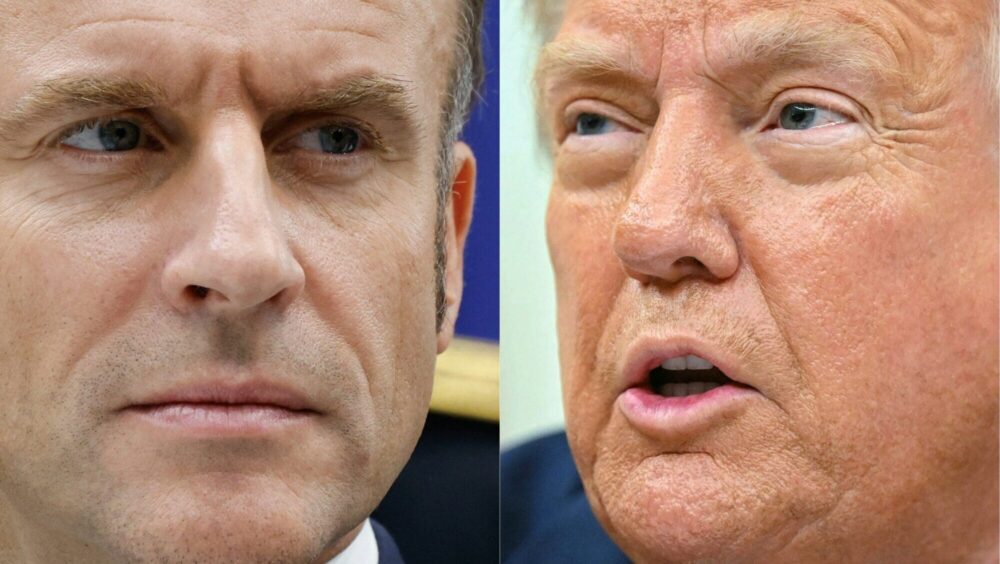French President Emmanuel Macron held a meeting with representatives of key industrial actors in Paris today, April 4th, with the aim of working out a counteroffensive against Donald Trump imposing 20% tariffs on all EU imports.
At the meeting, Macron urged French companies to suspend “investments forthcoming or announced in recent weeks” in the United States, calling Trump’s tariffs “brutal and unfounded.” “What message would we be sending if major European players were to start investing billions of euros in the U.S. economy just when we are being hit?” he questioned, advocating a unified response from Brussels.
However, this proposal seems out of step with economic reality: EU-U.S. trade is the most significant trade relationship in the world. In 2023, according to Eurostat data, EU exports of goods to the U.S. reached €502.3 billion, while imports from the U.S. totaled €345.7 billion, generating a trade surplus of €156.6 billion for the bloc. France alone exported goods worth 47 billion euros to the U.S. in 2023, with sectors such as pharmaceuticals (13 billion) and beverages (wines and spirits, 2.5 billion) relying heavily on that market, according to French banking group Natixis.
Suspending investment with such a crucial trading partner could hurt French businesses more than Washington, primarily when transatlantic trade supports millions of jobs on both sides of the ocean.
Other European leaders have reacted with cautious criticism, many from a conservative perspective that questions the Brussels narrative of blaming Trump for the bloc’s economic woes. Santiago Abascal, leader of Spain’s Vox party, tried to balance his rejection of the tariffs with his admiration for Trump. He said he respects a leader who defends “his interests,” even if they go “against ours.”
Abascal lashed out at Socialist President Pedro Sánchez and European Commission president Ursula von der Leyen, accusing them of failing to protect Spain. According to the Spanish Chamber of Commerce, Spain could lose up to €4.3 billion this year, with the agri-food sector—such as olive oil (€1 billion annually)—facing a devastating blow.
In Hungary, Péter Szijjártó, foreign minister and a member of Viktor Orbán’s Fidesz party, lambasted the “incompetence of Brussels politicians,” arguing that the European Commission “should have negotiated” instead of “turning an economic problem into an ideological one.” Szijjártó suggested that reducing European tariffs on cars from 10% to 2.5% could have averted this crisis, a stance that resonates with the conservative view that EU bureaucracy exacerbates the situation.
Alternative für Deutschland (AfD) on X said that “it would have been smart if the EU Commission had initiated a reduction of European auto tariffs in advance” instead of waiting for a reactive response. The party, which advocates less EU regulation, sees Trump’s tariffs as an opportunity to challenge Brussels’ leadership, especially when inflation in the eurozone reached 10.6% in 2022 and remains high (2.3% in March 2025, according to projections), fuelled by green policies that have made energy more expensive and devastated the agricultural sector.
In the Netherlands, Auke Zijlstra, MEP for the Freedom Party, called the EU’s criticism of Trump “hypocritical,” recalling that the bloc also imposes tariffs on external goods. “Free trade is an illusion,” he wrote in X.
For his part, Jean-Philippe Tanguy of the French National Rally reminded that “Obama extorted €10 billion from BNP Paribas” in 2014 with extraterritorial laws and called the Commission “stupid” for considering retaliatory tariffs on U.S. bourbon.
Blaming Trump alone for rising prices seems like an attempt by Brussels to divert attention from its failures. European inflation soared long before these tariffs, driven by energy dependence in the wake of the war in Ukraine and green policies that have raised agricultural production costs—such as the Green Deal, which has cut farmers’ incomes by 20% since 2020, according to farmers’ interest group Copa-Cogeca.






